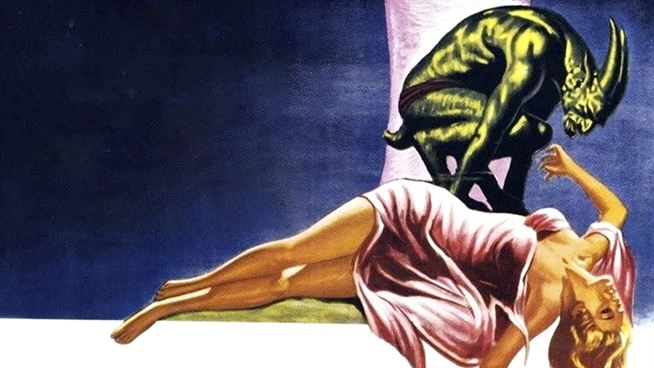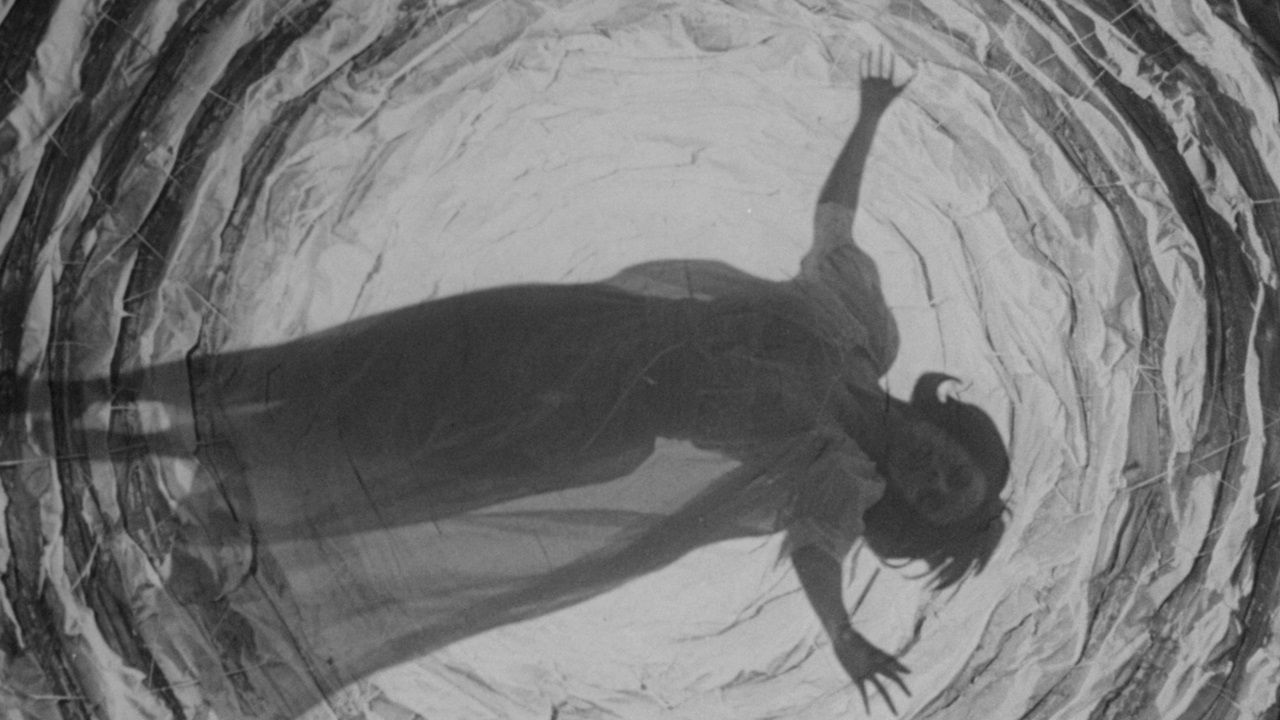
The master of gimmicky horror follows in the suspense maestro’s footsteps: For “He Only Came at Night,” director William Castle left aside his infamous tricks and tricks to breathe new life into Hitchcock’s staged set pieces. There was also a glamorous cast and a script by Robert Bloch, the author of the novel “Psycho”!
Nevertheless, the thriller was criminally neglected in Germany: after its theatrical release it was occasionally shown on TV, but it was only released for home cinema in 2020 – and quickly sold out. This is why the first Blu-ray edition sometimes sells for almost triple-digit prices on the second-hand market. Now a remedy has been devised: This week, He Came Only at Night received its long-awaited Blu-ray reissue!
“He only came at night” on Amazon*
In addition to the 1960s genre insider tip, the Blu-ray includes two audio commentaries and an alternate German title sequence. Unfortunately, “He Only Came at Night” is currently nowhere to be found on streaming – which could explain why the film is so popular on Blu-ray despite its relatively low popularity.
“He only came at night”: a life like a nightmare
Irene Trent (Barbara Stanwyck) is trapped in an unhappy marriage and haunted by oppressive dreams that she can barely separate from her reality. When her overbearing husband (Hayden Rorke) dies in a terrifying manner, Irene’s condition worsens even more: she hears creepy noises throughout the house and strange things keep happening. So her lawyer Barry Morland (Robert Taylor) hires a private investigator to find out if someone is trying to drive her crazy…
Lead actress Barbara Stanwyck especially enjoyed glamor and glory in the dream factory as a tough heroine or femme fatale. One of the four-time Oscar nominee’s (and 1983 Lifetime Achievement Award winner) most famous works is the film noir masterpiece ‘Woman Without Conscience’, which has had a lasting impact on her image.

As a weakened, panicky figure, she was little remembered by the general public, despite the thriller ‘You’ll Live for 105 Minutes’, in which she plays a bedridden heart patient. So Stanwyck was cast in He Only Came at Night, against her public image. A challenge that led to an enjoyable, pathetic performance, but it is also considered a contributing reason the film met its demise. Screenwriter Robert Bloch also speculated in interviews that contemporary audiences could not accept her as a damsel in distress, and that the film suffered as a result.
The casting brought a lot of publicity, as Stanwyck met her ex-husband again through “He Only Came at Night”: “Quo vadis?” star Robert Taylor. The tabloids were hoping for a backstage mudslinging, but that didn’t happen: Taylor and Stanwyck got along well on set.
It wasn’t just an era ending
Although ‘He Only Came at Night’ only made the cash registers ring softly, the psychological horror became a turning point in Hollywood history – for several reasons: It would be Stanwyck’s last feature film before she devoted herself exclusively to television. For supporting actor Tetsu Komai (“Island of Lost Souls”), it was the last appearance in front of the camera after an almost 40-year career – mainly as a villain or eccentric side character.
Also For director William Castle, ‘He Only Came at Night’ marked a turning point: He used to like to rely on flashy gimmicks in horror films and thrillers. For ‘Scream When the Tingler Comes’ he had people in monster costumes running through the cinema halls. At screenings of ‘The House on Haunted Hill’, skeleton dummies were chased through the audience and you could take out life insurance before seeing the film ‘Macabre’.
Castle avoided such tricks in “He Only Came at Night”. This turn to seriousness, however, did not bear fruit, which had consequences: Castle’s position of power in the American film world declined, so that his financiers often blocked subsequent attempts to rely on gimmicks again. Over and beyond After “He Only Came at Night,” Universal Pictures decided to turn its back on black-and-white films.
Eyeballs, goat demon and horror wedding
However, “He Only Came at Night” has more to offer than its status as a turning point in his career: William Castle’s attempt to adopt Alfred Hitchcock’s style doesn’t come close to the supsense maestro’s greatest classics. Nevertheless, the filmmaker has managed to create an atmospherically dense Hitchcock approach that impresses with his committed performances and his creepy style.
The surreal opening, in which the heroine encounters a goat demon and is chased by floating eyes, evokes memories of the dream sequences in Hitchcock’s “I’m Fighting for You.” Irene’s uncertainty about what is delusion and what is reality has something of a pleasant B-movie “Vertigo” and achieves this Climax in an oppressive wedding sequence full of underlying, reverberating menace.
Despite the atmospheric camerawork, the sense of paranoia fades somewhat in the final third as the film moves too frantically towards its final resolution. Yet he stays an effective insider tip for genre fanswho have a soft spot for psychological thrillers in gallant, eerie black and white.
Author: Sidney Schering
Source : Film Starts
I am Dawid Malan, a news reporter for 24 Instant News. I specialize in celebrity and entertainment news, writing stories that capture the attention of readers from all walks of life. My work has been featured in some of the world’s leading publications and I am passionate about delivering quality content to my readers.







